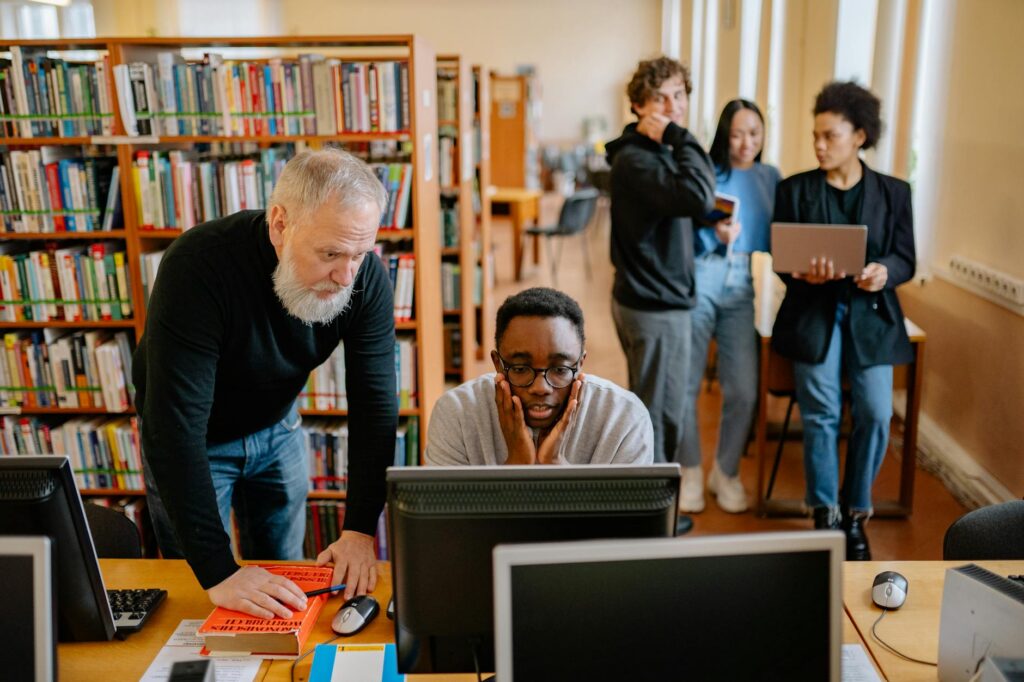What is academic support?

What is Academic Support?
Academic support is essential in enhancing the learning experience for students across all educational levels. It comprises various resources and services aimed at improving academic performance, fostering personal growth, and promoting overall success. By providing tailored assistance, academic support plays a pivotal role in navigating the often overwhelming world of education. Whether you’re a high school student facing challenging subjects or an adult learner juggling multiple responsibilities, the right academic support can make all the difference.
Understanding Academic Support
At its core, academic support involves any resource that aids students in their educational journey. This can include tutoring, mentoring, workshops, and counseling, all designed to help learners overcome academic challenges. According to EdGlossary, academic support encompasses various educational strategies, from tutoring sessions to supplemental courses. The goal is to equip students with the tools they need to succeed in their studies and beyond.
Types of Academic Support
There are several types of academic support available, each tailored to meet different needs:
-
Tutoring: One-on-one or group sessions where students receive personalized help in specific subjects. This is often a great way to clarify difficult concepts and improve grades. For example, the Sanger Learning Center at the University of Texas offers personalized tutoring to help students tackle their coursework.
-
Counseling Services: Academic counselors can help students set goals, manage their time, and deal with stress. They play a crucial role in guiding learners to make informed decisions about their academic paths.
-
Peer Study Groups: Collaborating with classmates can enhance understanding and retention of material. These groups foster a sense of community and accountability among students.
-
Institutional Resources: Many schools and universities offer academic support centers that provide various services like workshops on study skills, writing assistance, and exam preparation. The University of Kansas has such resources to support student learning.
Target Audience for Academic Support
Academic support is beneficial for a wide range of learners. Here’s a closer look at who can take advantage of these invaluable resources:
-
High School Students: Often facing the pressure of college readiness, high school students can greatly benefit from tutoring and study skills workshops.
-
College Students: Those in higher education frequently encounter challenging coursework and new academic demands. Academic support can help them navigate these challenges.
-
Adult Learners: Adults returning to education or pursuing higher degrees often juggle various responsibilities. Support services can assist in balancing studies with work and family life.
Benefits of Academic Support
Academic support offers numerous benefits that extend beyond just improving grades. Here are some key advantages:
Improved Academic Performance
When students engage with academic support services, they often see a noticeable improvement in their grades and understanding of the subject matter. Personalized tutoring can clarify complex topics and provide tailored study strategies, helping students grasp difficult concepts more effectively. This individualized attention can be the difference between passing and excelling in a course.
Emotional and Mental Well-being
Academic support doesn’t just focus on grades; it also addresses emotional and mental health. The stress of school can be overwhelming. However, with access to counseling and peer support, students can learn to manage their stress, leading to a healthier school-life balance. When students feel supported academically, they are more likely to enjoy the learning process rather than view it as a burden.
How to Access Academic Support
Finding and utilizing academic support services can be straightforward if you know where to look. Here’s how to get started:
Online and Offline Resources
-
School Resources: Most schools and universities have dedicated academic support centers. For instance, the Florham Academic Support Center provides free resources for students.
-
Online Tutoring Platforms: With the rise of technology, many online platforms offer tutoring services. Websites like Khan Academy and Coursera provide valuable resources for learners of all ages.
-
Local Libraries and Community Centers: These often host study groups and workshops focused on academic skills.
Making the Most of Academic Support
To maximize the benefits of academic support services, consider these tips:
-
Be Proactive: Don’t wait until the last minute to seek help. If you’re struggling, reach out early to address your challenges.
-
Set Clear Goals: Before attending a tutoring session or workshop, define what you hope to achieve. Having specific objectives can help guide your learning.
-
Engage Actively: Whether in a tutoring session or a study group, participate actively. Ask questions and share your thoughts to get the most out of the experience.
Conclusion: The Role of Academic Support in Education
In conclusion, academic support is a vital component of the educational experience. It not only enhances academic performance but also promotes emotional and mental well-being. Whether you’re a high school student preparing for college or an adult learner juggling life’s responsibilities, seeking out academic support can significantly benefit your educational journey. Embrace the resources available to you, and take the first step towards a more successful academic experience.

Photo by Yan Krukau